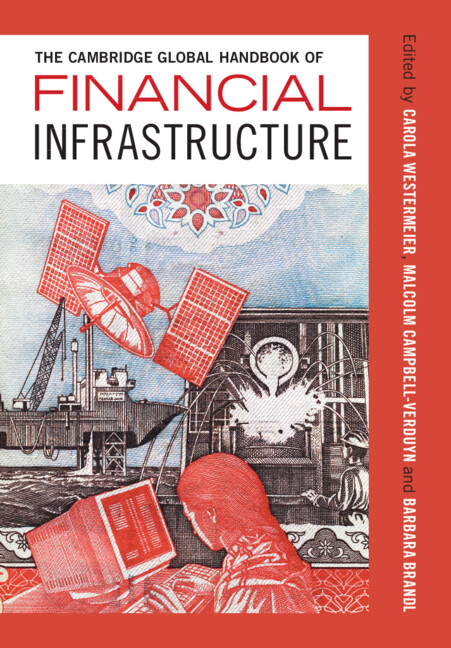From mortgages to sanctions: financial infrastructures shape our world

Who gets a mortgage, how are cuts in higher education implemented, and how do we finance the European Union's Green Deal? Financial infrastructures shape how our world operates. The Cambridge Global Handbook of Financial Infrastructures, which will be presented online on 16 September, highlights the deep interconnection between economics and politics.
Financial infrastructures have a major impact on political developments, says Malcolm Campbell-Verduyn, Assistant Professor of International Political Economy at the University of Groningen. He is co-editor of the handbook and the organizer of the book launch event. The interconnectedness of economics and politics, he explains, is evident in cases such as the international sanctions against Russia. This topic will therefore take centre stage during the book launch. ‘Our book is an academic work, but we explicitly aim to share its insights with policymakers as well,’ Campbell-Verduyn adds.
During the book launch, consultant Stephen Fallon will offer a deeper look into international sanctions. He worked as Chief Compliance Officer for INSTEX, a European initiative designed by the UK, France, and Germany to facilitate trade with Iran without relying on the US financial system. ‘It’s a particularly interesting experiment that provides valuable insight into financial infrastructures,’ says Campbell-Verduyn.
The book moves beyond viewing infrastructure as only physical, the UG researcher continues. ‘When the word infrastructure comes to mind, most people think of physical objects such as bridges, pipelines and cables. Our book is also about the relationships between these physical objects and people. These relationships are crucial within the financial system: who gets a mortgage, how are cuts in higher education implemented, and how do we finance the European Union's Green Deal? Those are some of the central questions you can think about.’

Digitalization
The handbook combines historical insights into financial infrastructures with a focus on present-day developments. Inescapable in both past and present is digitalization, which Campbell-Verduyn says has led to a ‘new type’ of professional within financial institutions. ‘Whereas professionals like accountants still played a central role in 2008, today it is mostly software engineers and other technical people. This is changing the nature of the technical skills needed.'
At the same time, the researcher stresses the need for nuances. 'Many people think fintech (short for financial technology, ed.) is going to change everything. Take, for example, the highly debated blockchain technology, which some expect will lead to a democratization of the monetary system. We argue for a more balanced, academic discussion. It is a major change, but in an infrastructural view it will not lead to a complete democratization.’
Pros and cons
Nevertheless, infrastructural developments are rapidly following one another. ‘There have always been people pushing the boundaries of the financial system, but the speed of change and global interconnectedness are new. When we wrote our book a year ago, for example, there was no Trump memecoin (a digital currency, often based on an online joke, ed.).’ According to him, such memecoins create additional instability. ‘It increases the risk of problems, such as flash crashes. And this is closely related to the relationships I mentioned earlier: Trump supports these coins.'
Also read: interview with Campbell-Verduyn about crypto
Technological developments have brought undeniable progress, stresses the researcher. Take automation, for example. ‘Nowadays, we can transfer money at the touch of a button, whereas in the past gold had to be transported by ship. But we also have to look at the negative effects of technological development, such as energy consumption. It's all about the nuances.'
The UG researcher also emphasizes the relationship between colonialism and financial infrastructures. ‘The telegraph, for instance, was used by the British to send information from the colonies to the colonial centre in Europe. Financial infrastructures in the colonies were mainly focused on extraction, something you still see in the current system. Infrastructures are built with a specific purpose, and those purposes are not always nice.'
Conversations
Crucial is gaining knowledge about these processes, Campbell-Verduyn stresses. ‘There are significant benefits to be gained by using artificial intelligence (AI), but do those benefits outweigh the energy costs? And what is the environmental impact of a single bitcoin transaction? That knowledge is still lacking. These are conversations we’re not really having yet.’
The event on 16 September is co-organized by the Jantina Tammes School of Digital Society, Technology and AI and the Rudolf Agricola School for Sustainable Development.
More news
-
15 September 2025
Successful visit to the UG by Rector of Institut Teknologi Bandung

